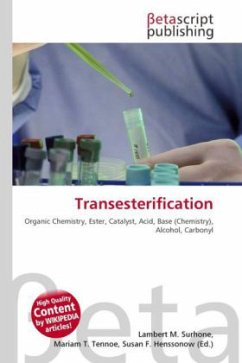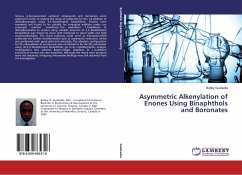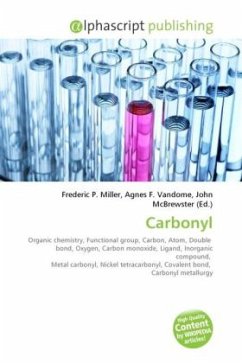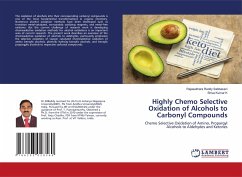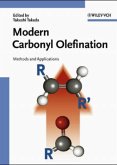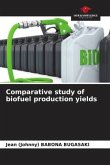High Quality Content by WIKIPEDIA articles! In organic chemistry, transesterification is the process of exchanging the organic group R" of an ester with the organic group R' of an alcohol. These reactions are often catalyzed by the addition of an acid or base. Acids can catalyse the reaction by donating a proton to the carbonyl group, thus making it more reactive, while bases can catalyse the reaction by removing a proton from the alcohol, thus making it more reactive. Transesterification is used in the synthesis of polyester, in which diesters undergo transesterification with diols to form macromolecules. For example, dimethyl terephthalate and ethylene glycol react to form polyethylene terephthalate and methanol, which is evaporated to drive the reaction forward.
Bitte wählen Sie Ihr Anliegen aus.
Rechnungen
Retourenschein anfordern
Bestellstatus
Storno

